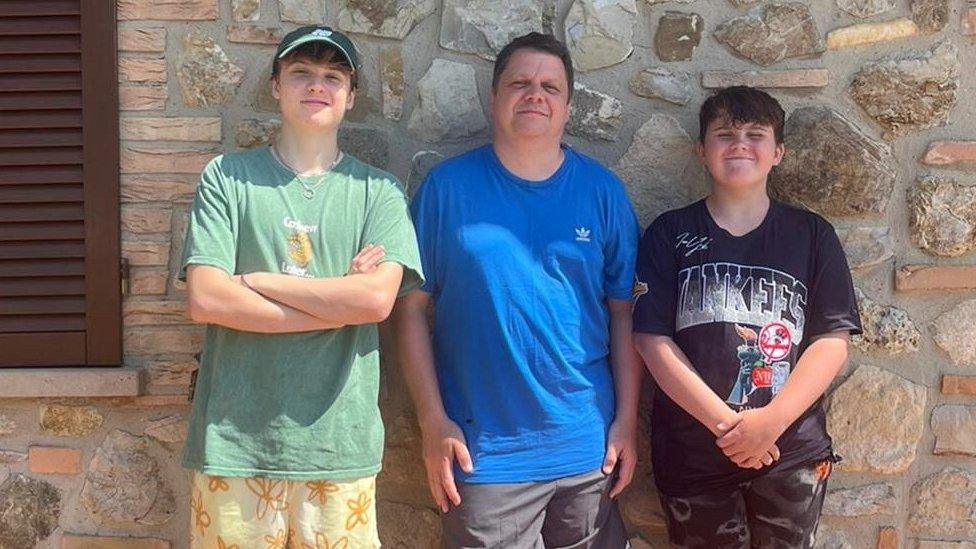Sheffield couple's dementia warning after three-year wait for diagnosis
- Published

Mr Heslop (centre) said he finally realised something was wrong with his partner when she failed to stop the car
The partner of a woman diagnosed with dementia in her 40s has warned people to look out for the signs of early dementia in their loved ones.
Gareth Heslop said his partner, Sarah Frith, was diagnosed with frontotemporal dementia in October 2022.
Mr Heslop, from Sheffield, said Ms Frith slowly started to struggle with day-to-day tasks.
He said someone with dementia might not always recognise they have issues.
Mr Heslop and Ms Frith have been together for 23 years, and have two children, aged 12 and 21.
Mr Heslop said the couple both lost their jobs in 2019 and he thought his partner's behavioural changes were due to the stress of the situation.
However, he said when Ms Frith started a new job working from home, towards the end of 2020, he saw she was struggling with tasks she would usually have managed.
'Stress or anxiety'
He said other changes slowly became apparent including confusion when driving the car. "In one instance she drove without lights and had to be physically helped to apply the brakes," he said.
"That's when I knew something wasn't right and booked an appointment with the GP," he added.
Following a GP visit in 2021 Ms Frith was diagnosed with stress and anxiety and signed off work, but a follow-up scan revealed deterioration in the front of her brain.
After further scans and tests in October 2022 Ms Frith was formally diagnosed with frontotemporal dementia, aged just 48, three years after her behaviour had first started to alter.
"I've gone through some tough times in my life, but none of it compares to the sheer exhaustion of looking after my partner, family and working full-time," Mr Heslop said.
Speaking about the gradual nature of the onset of Sarah's illness Mr Heslop said: "It's not like if your partner had a road accident where you go from a normal situation to an extreme one really quickly, with dementia it's slowly, slowly, over time."
He said people should not dismiss behaviour changes in loved ones and should seek medical advice as soon as changes become noticeable.
"The problem is I'd always dismiss it as stress or anxiety, she's always been quite an anxious person anyway.
"There were always reasons to fall back on, to think it wasn't dementia."
If you've been affected by the subject of this story, find more places for help and advice via the BBC Action Line.

Follow BBC Yorkshire on Facebook, external, X (formerly Twitter), external and Instagram, external. Send your story ideas to yorkslincs.news@bbc.co.uk, external.